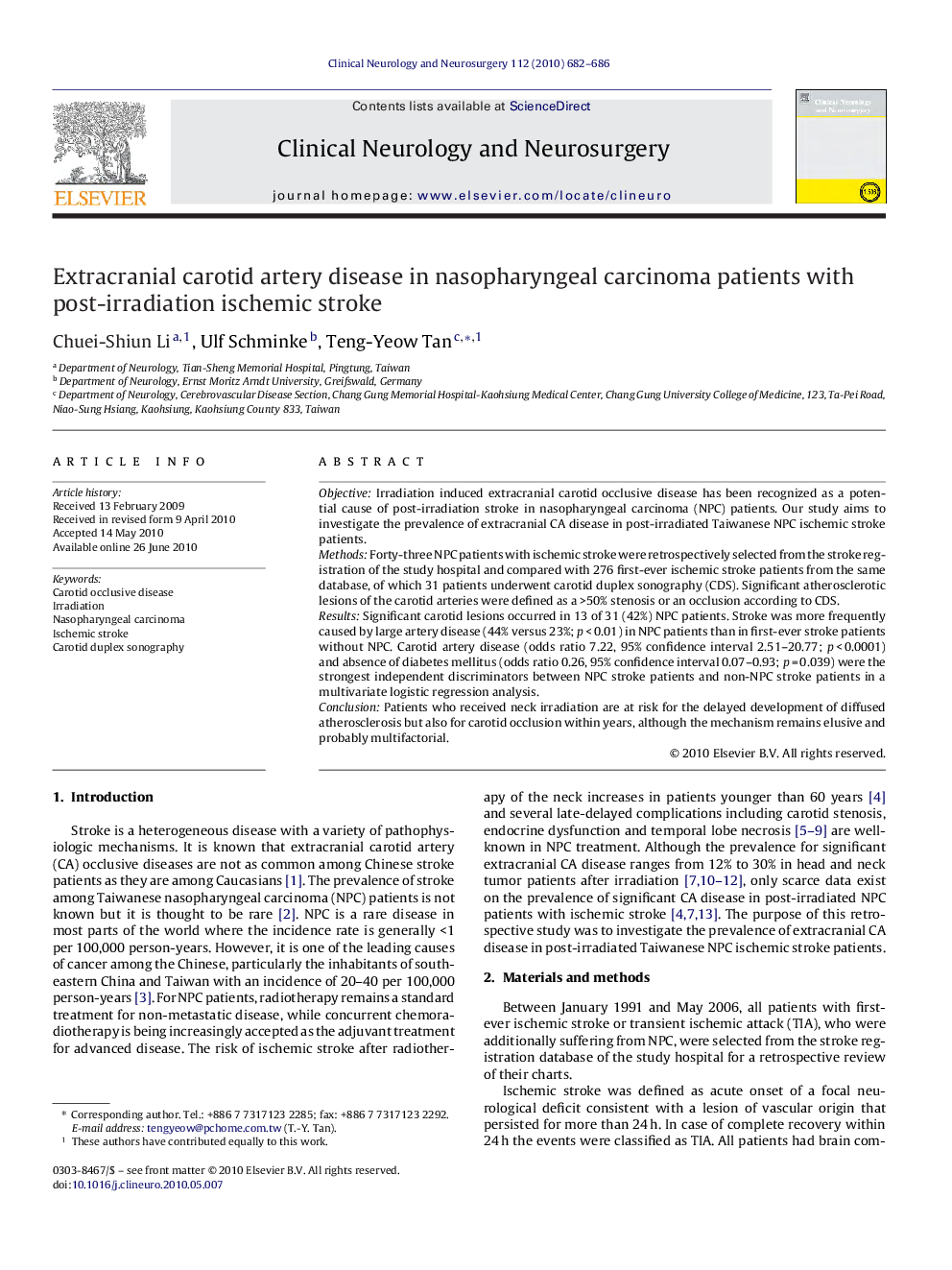| Article ID | Journal | Published Year | Pages | File Type |
|---|---|---|---|---|
| 3041291 | Clinical Neurology and Neurosurgery | 2010 | 5 Pages |
ObjectiveIrradiation induced extracranial carotid occlusive disease has been recognized as a potential cause of post-irradiation stroke in nasopharyngeal carcinoma (NPC) patients. Our study aims to investigate the prevalence of extracranial CA disease in post-irradiated Taiwanese NPC ischemic stroke patients.MethodsForty-three NPC patients with ischemic stroke were retrospectively selected from the stroke registration of the study hospital and compared with 276 first-ever ischemic stroke patients from the same database, of which 31 patients underwent carotid duplex sonography (CDS). Significant atherosclerotic lesions of the carotid arteries were defined as a >50% stenosis or an occlusion according to CDS.ResultsSignificant carotid lesions occurred in 13 of 31 (42%) NPC patients. Stroke was more frequently caused by large artery disease (44% versus 23%; p < 0.01) in NPC patients than in first-ever stroke patients without NPC. Carotid artery disease (odds ratio 7.22, 95% confidence interval 2.51–20.77; p < 0.0001) and absence of diabetes mellitus (odds ratio 0.26, 95% confidence interval 0.07–0.93; p = 0.039) were the strongest independent discriminators between NPC stroke patients and non-NPC stroke patients in a multivariate logistic regression analysis.ConclusionPatients who received neck irradiation are at risk for the delayed development of diffused atherosclerosis but also for carotid occlusion within years, although the mechanism remains elusive and probably multifactorial.
